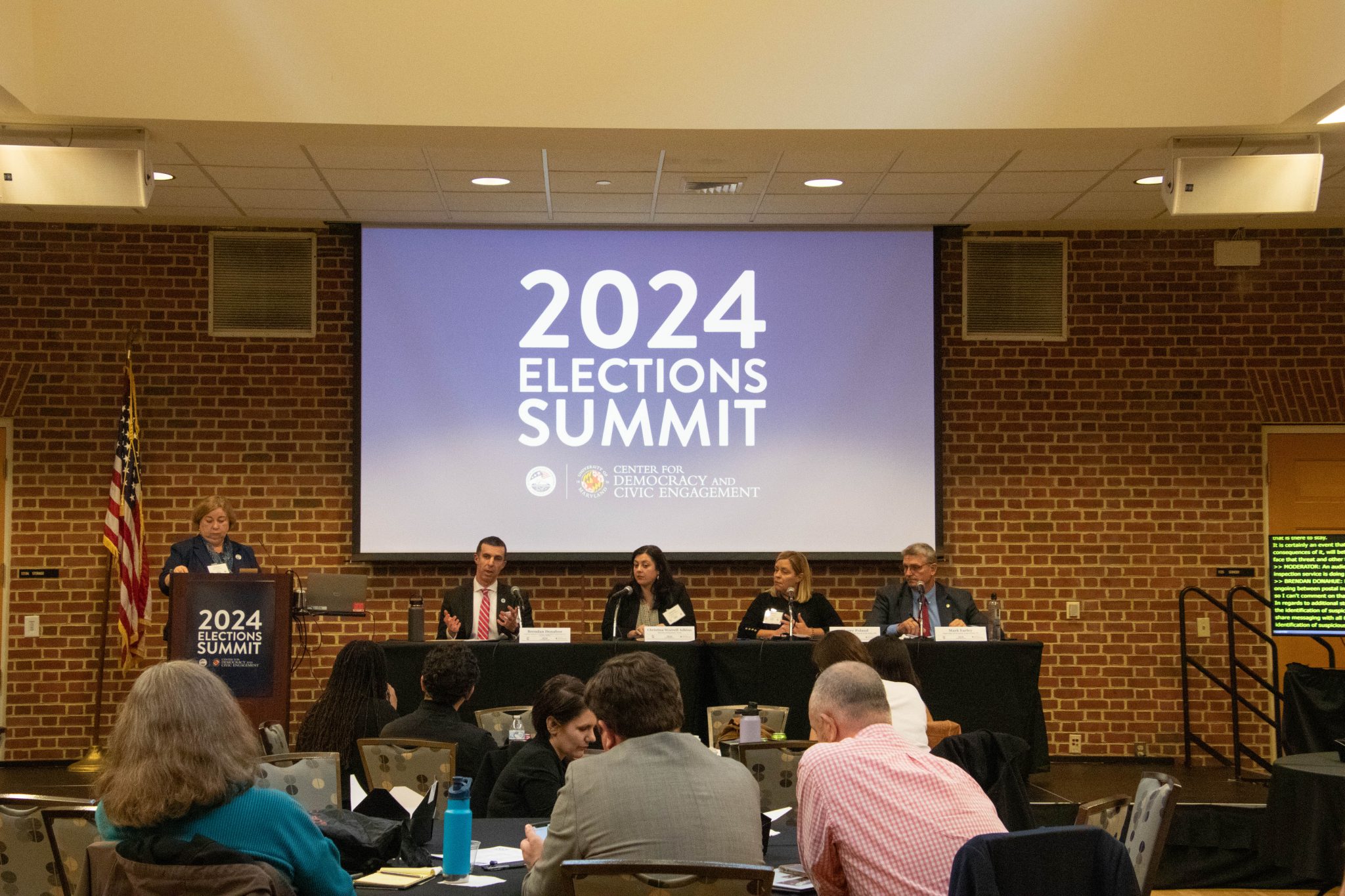Panelists gathered at the University of Maryland on Tuesday to discuss election security, communication, transparency and more ahead of November’s presidential election.
The summit, hosted by the U.S. Election Assistance Commission and this university’s Center for Democracy and Civic Engagement, took place on “Help America Vote Day,” a holiday created by the commission to inform and recruit poll workers. Speakers on the panel expressed interest in getting young people involved in elections.
In an opening address, Christy McCormick, the commission’s chair since 2014, emphasized the importance of social media in advertising and spreading information about voting and elections.
“Once upon a time, people read the newspaper along with their morning cup of coffee. Now they’re checking their X feed,” McCormick said. “Being able to adjust and be open to new ideas is crucial as we communicate with the current generations, as well as those to come.”
In a panel about election-related communication, discussions about youth involvement also prevailed.
[College Park City Council discusses rent subsidy pilot program for student housing]
Jennifer Scutchfield, Kentucky’s assistant secretary of state, emphasized the importance of civics education for voting.
She also said the trust voters have in local election officials is crucial for election communications.
“The reality is the people in those counties know those county clerks,” Scutchfield said. “They go to school with them, they work with them, they vote with them, they go to church with them, they grocery shop with them,” Scutchfield said.
In another panel, Benjamin Hovland — the EAC’s vice chair — brought up the importance of making voting accessible to people with disabilities, rural voters and those without a permanent address.
“One piece of this that really comes together for so many Americans is that the American population is increasingly mobile, whether you are a member of the military or a military family, [or] a student,” Hovland said.
It’s important for people — especially students who live away from their hometowns while at school — to update their voter registrations, Hovland said. He explained keeping voter registration current ensures someone can vote by mail or with an absentee ballot without issues.
According to Sam Novey, the chief strategist at this university’s democracy and civic engagement center, there are about 5,000 students at this university who are eligible to vote but are unregistered.
Efforts undertaken by election officials to ensure free and fair elections were also discussed, as well as their own safety in the face of doubts about election integrity.
[UMD SGA debates election reform, passes six bills in longest meeting of semester]
U.S. Rep. Steny Hoyer, a Democrat who represents Maryland’s 5th congressional district, discussed previous challenges to the integrity of elections in 2020, citing the Jan. 6 insurrection in 2021 as a “dramatic example” of what can happen when people express doubts about elections. Ensuring that people’s votes are counted is important, he said.
“Your responsibility is, whatever relationship you have with voting, is to focus on making sure that people can vote and their votes are counted properly,” he told attendees. “You have to have faith in the fact that the result is, in fact, the result that the majority intended to have.”
Other panelists such as Alysoun McLaughlin — Montgomery County’s former deputy election director — provided advice to election officials themselves, focusing on the importance of collaboration and mentorship.
“[Seek] first to understand and then to be understood,” McLaughlin said to election officials. “Listen to those around you. Listen to your team, whether that team is a bureaucracy … or whether that team is your most experienced poll workers.”



